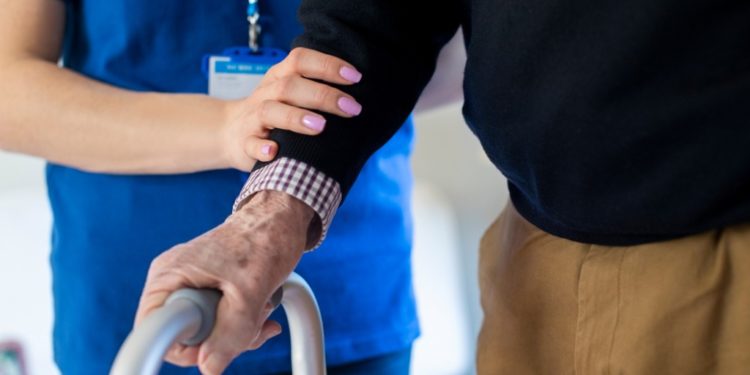On January 5, the U.S. Department of Justice announced a $10 million False Claims Act (FCA) settlement with the home healthcare company Atlantic Home Health Care LLC (AHH). The case stems from a qui tam whistleblower suit which alleged that AHH submitted false claims to the Energy Employees Occupational Illness Compensation Program (EEOICP), a healthcare program administered by the Department of Labor (DOL) for the benefit of Department of Energy employees and contractors with occupational illnesses.
According to the government, “between 2017 and 2021, AHH falsely billed the Energy Program for in-home nursing and personal care when its employees were not physically present in patients’ homes.”
The government further alleges that AHH paid kickbacks, “in the form of cash payments up to $5,000 for patient referrals via its ‘friends and family program’ and in-kind payments for food, internet, travel and other expenses made to patients and their families. The Anti-Kickback Statute prohibits parties who participate in federal healthcare programs, such as the Energy Program, from knowingly and willfully paying or receiving any remuneration in return for referring an individual to, or arranging for the furnishing of, any item or services for which payment is made by, the federal healthcare programs.”
“Quality care is critical to beneficiaries participating in the Energy Employees Occupational Illness Compensation Program,” said U.S. Attorney Gary M. Restaino for the District of Arizona. “The payment of cash kickbacks to induce referrals has no place in our healthcare system. False Claims Act enforcement protects the integrity of federal healthcare programs.”
The allegations against AHH were brought forth in a qui tam suit filed by Tonya Cass, who was formerly employed as the Corporate Administrator and Director of Human Resource Administration and Management by AHH.
The False Claims Act’s qui tam provisions enable private citizens and private parties to file lawsuits on behalf of the government if they know of an individual or company defrauding the government. Qui tam whistleblowers are eligible to receive between 15 and 30% of the government’s recovery.
Cass will receive approximately $1.7 million for her whistleblowing.
On July 25, a bipartisan group of senators introduced the False Claims Amendments Act of 2023, which address a few technical loopholes undermining the success of the FCA. The bill is widely supported by whistleblower advocates.
“The False Claims Act is America’s number one fraud-fighting law,” said whistleblower attorney Stephen M. Kohn. “These amendments are urgently needed to ensure that whistleblowers can continue to play their key role in protecting taxpayers from corporate criminals.”
Further Reading:
Bipartisan Legislation Unveiled to Strengthen False Claims Act


